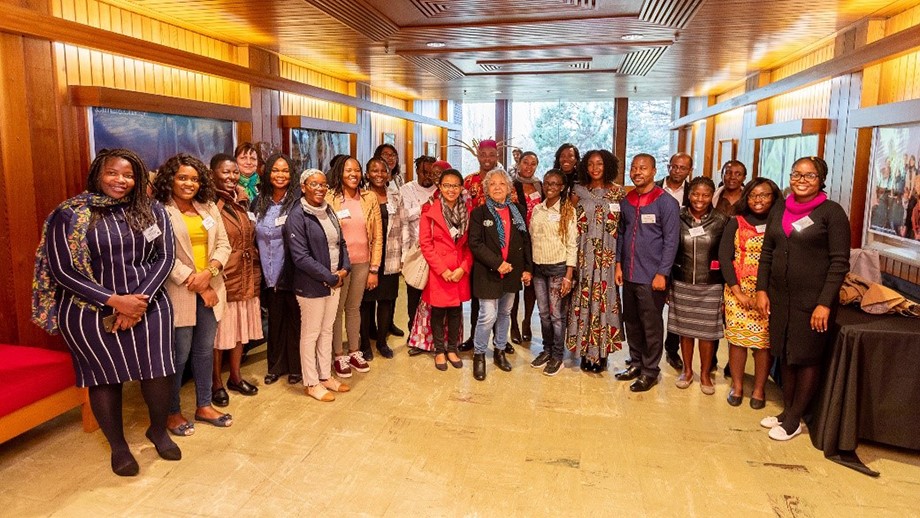2019 Climate Education Highlights
As the impacts of climate change become increasingly apparent, people who understand its multiple dimensions and can contribute to developing, communicating and implementing innovative solutions are in increasingly high demand.
Master of Climate Change profile
Climate change knowledge to practice: How what I'm learning will help my country »

Master of Climate Change student, Chinthaka Jayasooriya, is a research officer with an Agrarian Research and Training institute in Colombo, Sri Lanka. He believes there’s already relatively good understanding of how climate change will affect his country, but that what’s lacking is the skills to apply that knowledge to develop policy and management solutions.
For me, the Master of Climate Change is all about policy application. When I get back home, I’ll be well placed to develop solutions and apply them. I’m getting real world experience, which will give me a much better career path when I return to Sri Lanka. And I’m experiencing legends! I’ve read many reports from the Intergovernmental Panel on Climate Change and now I can discuss climate change with some of the authors. These teachers are role models for me.
PhD profiles
What’s driving youth participation in the school climate strikes? »

The school climate strikes have mobilised millions of young people around the world. In September 2019, hundreds of thousands of school students and their families rallied across Australia, kicking off a day of protest that brought together millions around the world. The School Strike 4 Climate has become one of the largest protest events ever held in Australia. Hannah Feldman is doing a PhD with the Australian Centre for the Public Awareness of Science exploring what’s motivating this enormous mobilisation.
Climate change is an issue that is massively relevant to youth – arguably it represents the greatest challenge facing this generation. The way that youth have led this protest is completely different from anything we’ve seen before. It represents the intersection of a unique set of social and psychological factors.
Climate Essentials professional short courses

In 2019, the CCI ran two one-day professional short courses on recent advances in climate science and the social, policy and economic aspects of climate change. The courses were attended by policymakers, consultants and NGO staff and featured leading climate experts from across ANU.
What people said:
Probably the best short course I have attended to date. Great work.
“All the presenters were at the top of their game, highly professional and the topics fully engaging.”
“The range of speakers and different parts of the talks provided good insight into how to build this into my work in policy and stakeholder engagement.”
Climate Change Adaptation short course for professionals from Africa

The CCI and the Fenner School of Environment & Society co-ordinated an intensive 8-week course to provide an understanding of climate change adaptation. Scholars came from government, NGOs and the private sector and had been identified as emerging leaders. The course is part of the Australia Awards - Africa Program and received the largest number of applications for any course of this type.
What people said:
On behalf of my country, I sincerely thank the Australian Government for the opportunity to attend this course, which is rich in lessons and experience. This course should be organized annually to further strengthen the technical capacities of African countries.
The opportunity to be at ANU opened me up to a world of advanced concepts, skills and technologies from leaders in climate change and birthed professional networks that have motivated me to be an agent of change.
Climate Change Science and Policy course
The Climate Change Science & Policy course (run by the Fenner School of Environment and Society) was revitalised in 2019, with various new and innovative teaching techniques added. Our wide-ranging course involved everything from climate science discussions with staff playing the role of climate deniers / skeptics, to a United Nations roleplay creating a new international climate agreement. Contributors to the course included academics from three ANU Colleges and senior staff from the Federal and ACT governments.With a record breaking 140 enrolments, the ANU is actively preparing the next generation of climate leaders.
Flipped Learning on Sustainability
Tom Worthington has revamped his "ICT Sustainability" course (COMP7310) to incorporate "flipped" learning from 2020. This award-winning course teaches how to reduce carbon emissions using computers, and has been offered by ANU since 2019, delivered over the Internet. In the new format, students will have the option of attending face-to-face workshops, to supplement their online learning.







